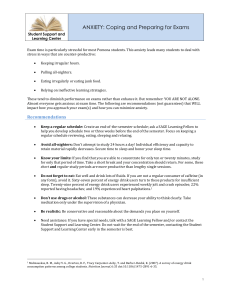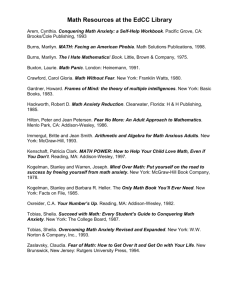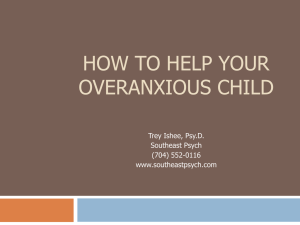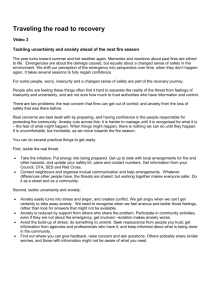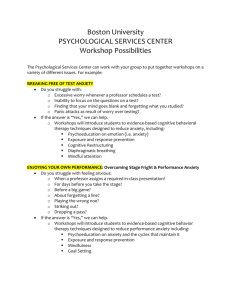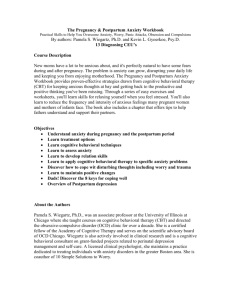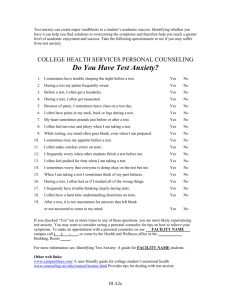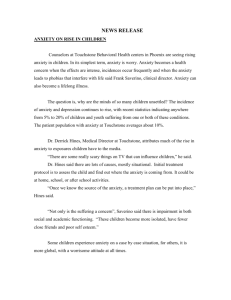Health Anxiety - The OCD-BDD Clinic of Northern California
advertisement
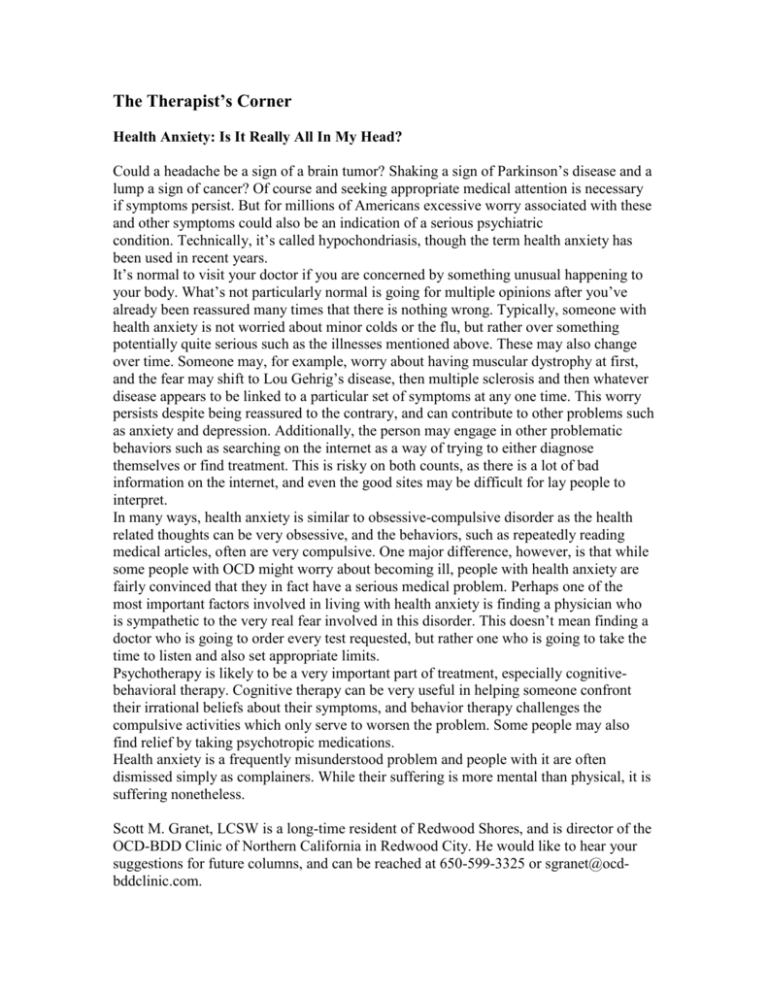
The Therapist’s Corner Health Anxiety: Is It Really All In My Head? Could a headache be a sign of a brain tumor? Shaking a sign of Parkinson’s disease and a lump a sign of cancer? Of course and seeking appropriate medical attention is necessary if symptoms persist. But for millions of Americans excessive worry associated with these and other symptoms could also be an indication of a serious psychiatric condition. Technically, it’s called hypochondriasis, though the term health anxiety has been used in recent years. It’s normal to visit your doctor if you are concerned by something unusual happening to your body. What’s not particularly normal is going for multiple opinions after you’ve already been reassured many times that there is nothing wrong. Typically, someone with health anxiety is not worried about minor colds or the flu, but rather over something potentially quite serious such as the illnesses mentioned above. These may also change over time. Someone may, for example, worry about having muscular dystrophy at first, and the fear may shift to Lou Gehrig’s disease, then multiple sclerosis and then whatever disease appears to be linked to a particular set of symptoms at any one time. This worry persists despite being reassured to the contrary, and can contribute to other problems such as anxiety and depression. Additionally, the person may engage in other problematic behaviors such as searching on the internet as a way of trying to either diagnose themselves or find treatment. This is risky on both counts, as there is a lot of bad information on the internet, and even the good sites may be difficult for lay people to interpret. In many ways, health anxiety is similar to obsessive-compulsive disorder as the health related thoughts can be very obsessive, and the behaviors, such as repeatedly reading medical articles, often are very compulsive. One major difference, however, is that while some people with OCD might worry about becoming ill, people with health anxiety are fairly convinced that they in fact have a serious medical problem. Perhaps one of the most important factors involved in living with health anxiety is finding a physician who is sympathetic to the very real fear involved in this disorder. This doesn’t mean finding a doctor who is going to order every test requested, but rather one who is going to take the time to listen and also set appropriate limits. Psychotherapy is likely to be a very important part of treatment, especially cognitivebehavioral therapy. Cognitive therapy can be very useful in helping someone confront their irrational beliefs about their symptoms, and behavior therapy challenges the compulsive activities which only serve to worsen the problem. Some people may also find relief by taking psychotropic medications. Health anxiety is a frequently misunderstood problem and people with it are often dismissed simply as complainers. While their suffering is more mental than physical, it is suffering nonetheless. Scott M. Granet, LCSW is a long-time resident of Redwood Shores, and is director of the OCD-BDD Clinic of Northern California in Redwood City. He would like to hear your suggestions for future columns, and can be reached at 650-599-3325 or sgranet@ocdbddclinic.com.




